Jadine Marie Sawyer, an 18-year-old female, was referred for counseling after experiencing a panic attack in her math class. She was assessed using several instruments including the ACT, Brief Mood Survey, intake interview, Strong Interest Inventory, and Myers-Briggs Type Indicator. The assessments found Jadine to be struggling with anxiety, stress, and feelings of being overwhelmed as a single parent. Recommendations focused on helping Jadine manage her anxiety and stress through lifestyle changes and counseling.
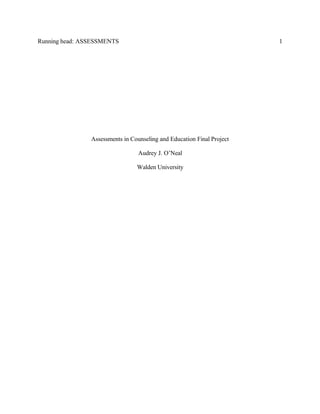
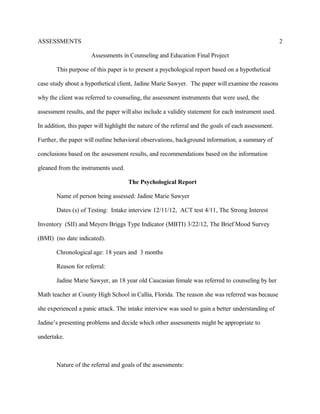
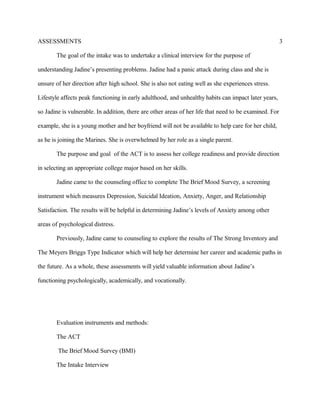
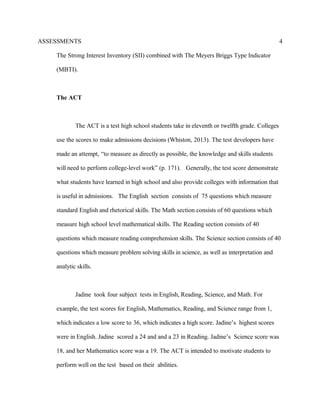
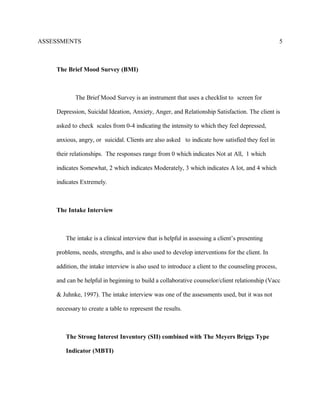
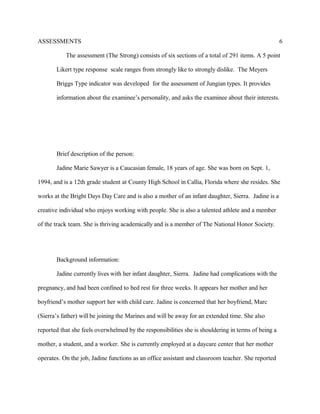
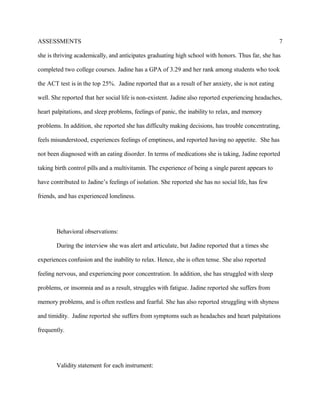
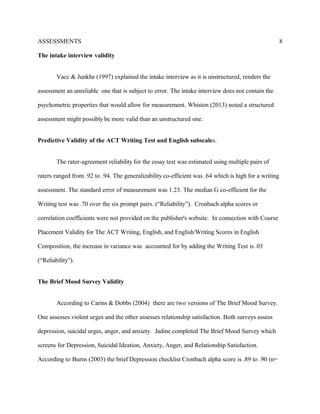
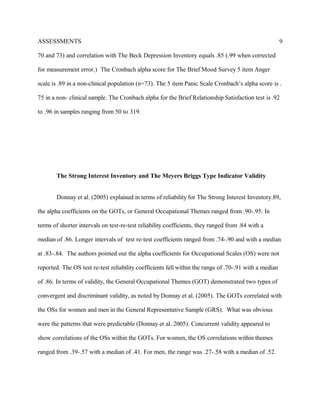
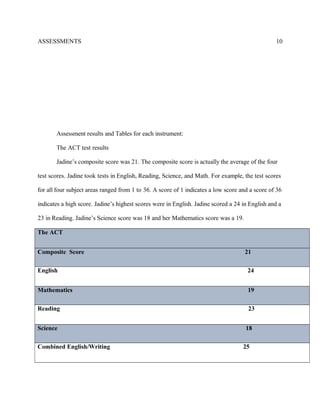
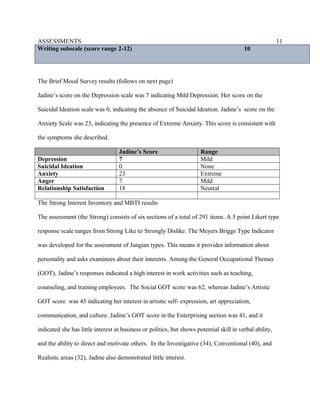
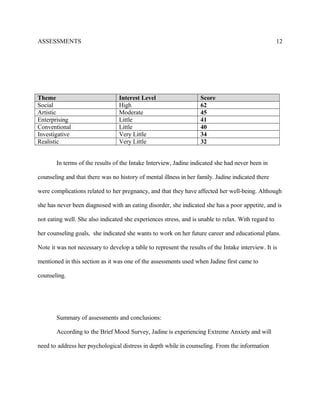
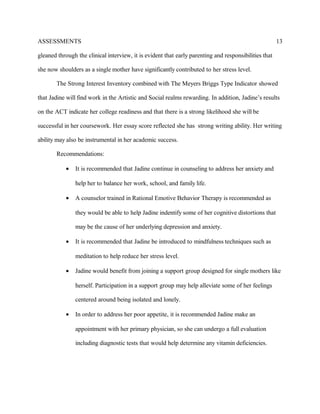
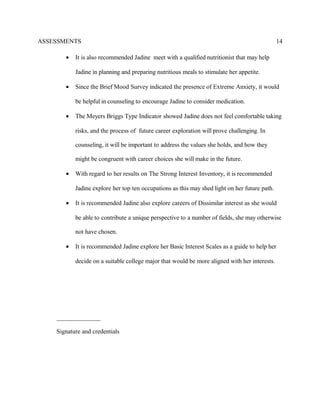
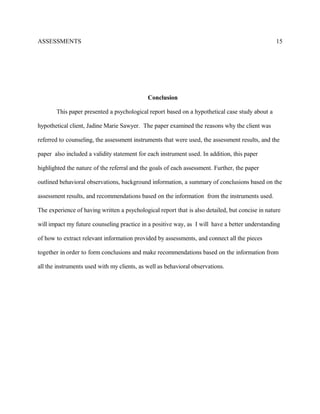
![ASSESSMENTS
References
American College Testing. (2014). Reliability of the ACT Writing Test. Retrieved from
http://www.act.org
Briggs, K. C., & Meyers, I. B. (n.d). Myers-Briggs Type Indicator
Carins, S. & Dobbs, J. (2004). Assessing counseling services: planning for successful outcomes.
[Power Point slides]. Retrieved from http://www.caucuss.ca/Librarydocuments/scarins-
cacuss2004-outcomes.pdf
Donnay, D. C., Morris, M. L., Schaubhut, N. A., Thompson, R. C., Grutter, J., & Hammer, A. L.
(2005). Strong Interest Inventory
Vacc, N. A., & Juhnke, G. A. (1997). The Use of Structured Clinical Interviews for Assessment
in Counseling. Journal Of Counseling & Development, 75(6), 470-480.
16](https://image.slidesharecdn.com/bb857de2-1624-4e52-bb94-926674994480-150615171445-lva1-app6892/85/Week11SubmitAssessmentsFinalProjectONealAPsychologicalreport-16-320.jpg)
